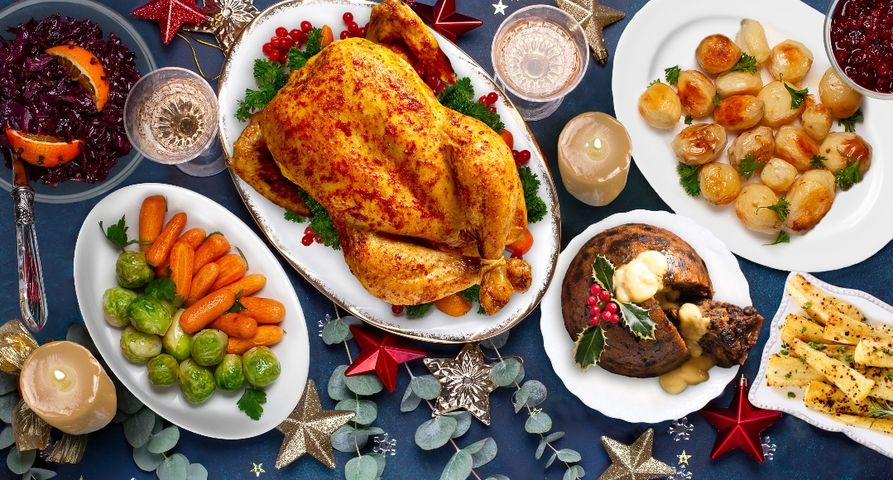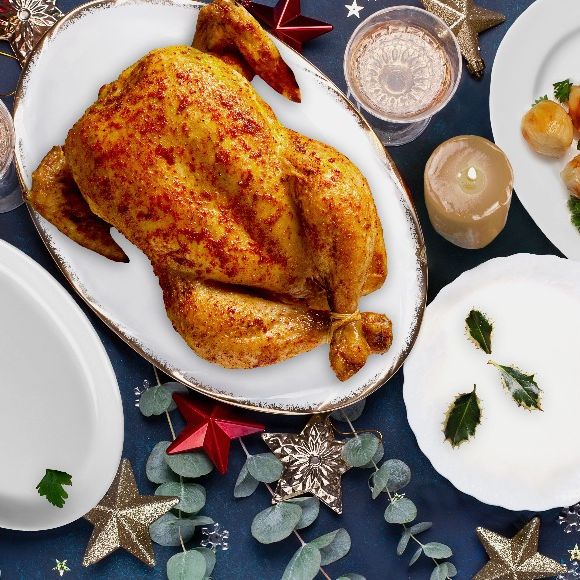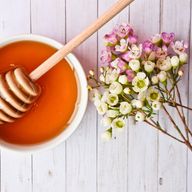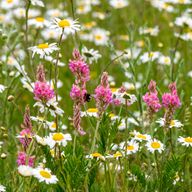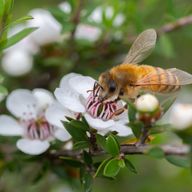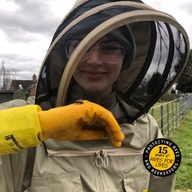
Can you imagine sitting down to a bland table this Christmas? No carrots, cranberry sauce or red cabbage. And, even if you don’t like them, a Christmas dinner wouldn’t be complete without a sprout or two. Moving on to dessert, there are no Christmas puddings in sight, and grandma’s famous trifle becomes just a heap of cream on top of sponge fingers.
This is the stark reality of a world without bees, depicted in a thought-provoking visual of a pollinator-free Christmas dinner by the UK’s favourite honey brand Rowse, to spotlight how this buzzing workforce needs our help. They’re on the look-out for budding bee buddies with a shared passion for pollinators to grow their caring community.
Bees are known and loved for producing delicious honey. But did you know that our diets depend upon these powerful pollinators? They are responsible for so many of our favourite foods, bestowing a rainbow of colour, flavour, variety and nourishing goodness onto our plates — and on to our dinner tables!
A staggering three-quarters of crops that produce food for us to eat are reliant on pollinators, like bees. Well-pollinated plants produce larger, more uniform and tastier fruit and vegetables. Contrastingly, inadequate plant pollination can lead to misshapen or bland crops or, worse still, none at all. Even meat and dairy products benefit from bee pollination as cattle often rely on insect pollinated plants, like clover. These miniature heroes have a vital impact on food production and balancing the environment.
Without bees, our plates would be beige and bland; we’d dish up turkey, potatoes and parsnips at best. Popular seasonal traditions would indeed look un-bee-lievably different, with most desserts off the menu too. Worse yet, there would be no ‘five-a-day’ without the hive. Here is a taste of what we’d miss out on:
- Nuts and berries for desserts and decoration (e.g. strawberries, raspberries, cranberries)
- Citrus fruits for garnishing and cocktails (e.g. lemons and limes)
- Vegetables (e.g. broccoli, carrots and Brussels sprouts)
Bees pollinate tirelessly and in turn, we enjoy balanced, delicious dishes. Take the honey bee, which typically has a foraging radius of three miles — a long way for a little guy. This incredible species is so dedicated that 12 honey bees will spend their whole lives producing just one teaspoon of honey.
The sting is, the number of British beehives has declined by nearly 75% over the last century. Currently, the UK is missing nearly 40% of the beehives needed to future-proof honey sustainability.
Fortunately, there’s a bee-rilliant bunch of bee farmers in the UK looking after the bee population. In fact, it’s estimated that we must increase our bee farmer count by a minimum of 33% — that’s 1,000 farmers — in the next decade so bees can continue pollinating and bringing our favourite, fresh food.
Rowse is showing support for the buzzing workforce. The leading honey brand is passionately striving to inspire, recruit and train the next generation of young British bee farmers through its world-class apprenticeship scheme, developed in partnership with the Bee Farmers Association. Launched in 2014 and open to 16 to 24-year-olds, 32 trainees have been placed during the first five years of the scheme.
It’s part of Rowse’s wider mission to help protect the honey bees through its Hives For Lives programme of vital initiatives, which also includes funding research into bees and offering beekeeping as a sustainable pathway out of poverty in Ethiopia.
Even if you’re not considering a change of career, you can still offer bees ‘hive help’ by planting pollinator-friendly flowers like lavender and sunflowers. If you find bramble or ivy flourishing in your garden, think twice before cutting this fauna back, as they’re bee havens. Letting a little patch of grass grow longer to boost nectar count or install a bee house are also sweet ways to welcome pollinators. Buzzing visitors will soon make a bee-line!
